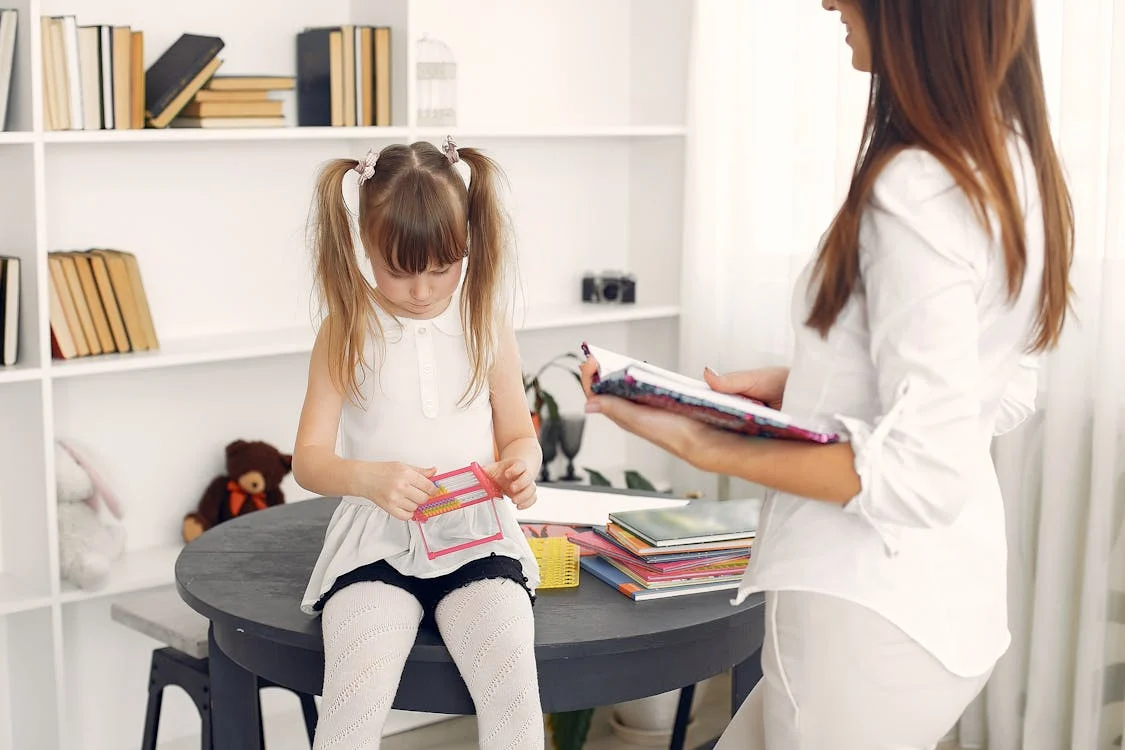Good manners are behaviors that help students grow into good respectable and responsible people. Parents have a big role in teaching them. When children learn good manners for students, they build confidence and earn respect from teachers and friends. These habits make school life easy and lead towards future success.
1. Greeting with respect
Teach your child to smile when greeting elders and teachers. Greeting with “Namaste,” “Good morning,” or “Hello” can be a great impression. This simple greeting expresses respect and sets up good relations.
2. Saying ‘Please’ and ‘Thank You’
Politeness is essential. When children utter “Please” while asking for something and “Thank you” after receiving any help, they show kindness. It helps in making friends and creates a friendly atmosphere.
3. Listening Attentively
Teach your child to listen attentively when others speak. Good listeners learn more in school and prevent misunderstandings. Make your child look at the person talking and not interrupt him or her.
4. Talking Civilly
Children must use polite words and a gentle voice. If they do not agree with someone, then they must tell them their own thoughts without showing rudeness. Civil talking creates strong friendships.
5. Respect to Seniors and Teachers
Good character is built upon respect. Train your child to stand up in the presence of elders and teachers and follow all the instructions that the teachers provide. Respectfulness will get him love and support from others.
6. Maintenance of Cleanliness and Hygiene
Good manners are not separated from good hygiene. Make your child wash his hands, keep clean clothes on, and a clean environment. A clean and disciplined student serves as an example for others as well.
7. Honesty and Truthfulness
Honesty builds trust. Teach your child to always tell the truth, even when they make mistakes. A truthful student earns respect from teachers and classmates.
8. Helping Others
Kindness matters. Teach your child to share books, help friends, and support classmates. Helping others builds strong friendships and creates a friendly school environment.
9. Following Rules and Discipline
Schools have rules for a reason. Following them teaches discipline and responsibility. Help your child understand why rules matter and how they make life easy.
10. Controlling Anger and Being Patient
Teach your child how to stay calm. Deep breathing and counting to ten before reacting can help. Patience makes handling difficult situations easy.
11. Using Words Instead of Hands
Children should never hit or push others. Instead, they must use words to express feelings. Teach them to say, “I didn’t like that” instead of getting angry.
Why Teaching Good Manners for Students is Important
Good manners give children respect and enable them to build proper relationships. They perform well in school and are good citizens. Their lifestyles become smooth as a result of teaching manners at home.
How Parents Can Teach Good Manners
Be a Role Model: Children copy what they see. Show good manners at home.
Praise Good Behavior: Appreciate when they behave well.
Teach Through Stories: Share stories that highlight good manners.
Practice Daily: Remind them every day about small acts of kindness.
FAQs About Good Manners for Students
1. When should I start teaching manners to my child?
Start early! Even small children can learn polite words and respectful behavior.
2. How do I teach my child good manners in school?
Role-play different situations at home. Teach them polite speech and teach respect for rules.
3. My child is forgetting good manners.
Remind them gently. Praise when he remembers. Learning takes time.
4. How can I teach my child to respect their teachers and elders?
Tell them about the value of listening, proper greetings, and obedience.
5. My child is shy. How can I help them develop social manners?
Start with small steps. Encourage simple greetings and polite conversations.
Conclusion
Good manners make life better. They help students in school, at home, and in society. Teaching manners from a young age ensures children grow into kind, responsible, and respected individuals. Start today, lead by example, and watch your child become well-mannered and confident.




